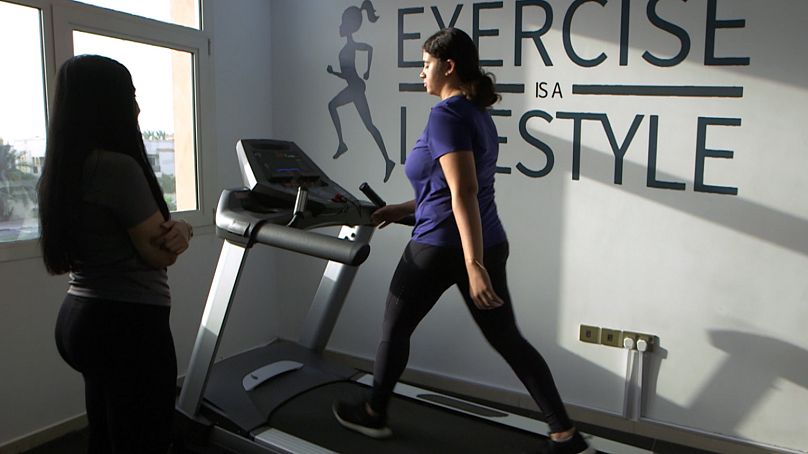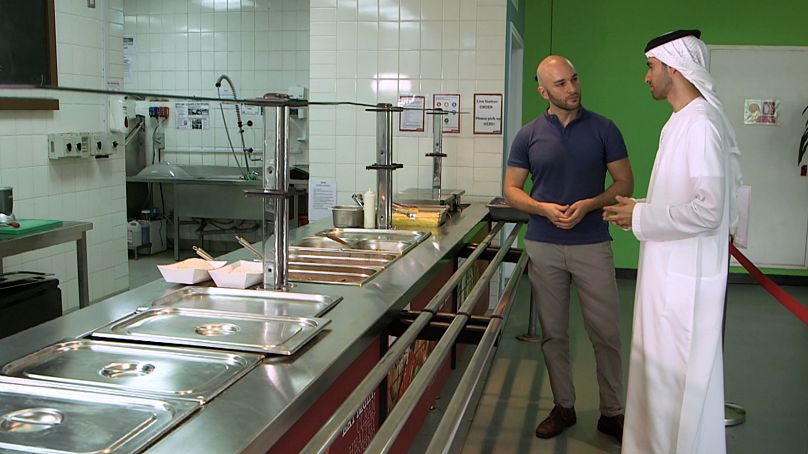Eighteen-year-old UAE-resident Nouran Fouad lost ten kilograms in two months after changing her eating habits and overhauling her lifestyle.
Eighteen-year-old UAE-resident Nouran Fouad lost ten kilograms in two months after changing her eating habits and overhauling her lifestyle.
 ADVERTISEMENT
ADVERTISEMENT
 ADVERTISEMENT
ADVERTISEMENT
Standing at 167 centimetres tall and weighing 85 kilogrammes, the Egyptian-Canadian high school student says that losing the weight helped build her self-confidence.
"I didn’t want to show my body to people," she says. “Before, I used to have a lot of goals and I never use to do them because I was too lazy.”
Fouad has been attending weekly meetings at the De Novu Institute in Dubai which, through its holistic approach to weight loss, overhauled her fitness routine, diet and social habits.
The teen plans to lose a further 10 kilogrammes before going to university later in the year, but for now, she’s looking forward to dressing in something form-fitting at her upcoming high school prom.
According to Julie Johnson, a senior health coach at the De Novu Institute, the combination of a sedentary lifestyle and a culture of generosity surrounding food, has created a widespread issue in Gulf Arab countries.
“The common trend is the family and peer pressure, they feel that it’s very disrespectful to not eat when they’re invited,” says Johnson. “They don’t know how to say no.”
The number of obese children, aged five to 19 years, has increased tenfold worldwide in the past four decades.
According to a study by Imperial College London and the World Health Organization, the numbers stood at 124 million in 2016.
Children in the Middle East and North Africa region have one of the top three fastest growing obesity rates, with more than 20% of youngsters classified as obese.
Some UAE educational institutions, like the Jumeira Baccalaureate School (JBS) in Dubai, are targeting the problem head-on, providing students with healthier food choices.
Lunchtime offerings include a buffet of nutritious food, including vegetarian options with sugar-free ketchup and mayonnaise.
“My favourite food is salad, so we can get healthy and get stronger," says six-year-old student Alice Santos.
The homegrown food company, Slices, which works with vendors to feed 10,000 UAE students a day - including JBS pupils - plans to take healthy eating a step further and use automation technology to track and inform parents of what their children are eating.
“So, right now we are building a dashboard that shows parents and students what’s the amount of fibre, protein, carbs - all of the macro nutrients - that have been consumed,” says Faisal Al Hammadi, the CEO of Slices. “And we compare that to global food school standard.”
The application is expected to launch this year, in an effort to have students not only bring back homework from school, but also healthier eating habits.
SEEN ON SOCIAL: HEALTHY HABITS
Trainer Rawan from Saudi shared this snap with her eldest daughter whilst pregnant of her second child, commenting that setting a good sporting example to children will keep them healthy.
Nutrition and fitness blogger Nathalie, who used to weigh 150kg, shared this before-and-after photo of her weight loss journey.
Lebanese fitness instructor Zahi posted this timelapse of his high-octane spinning class, saying healthy habits must be for life.












